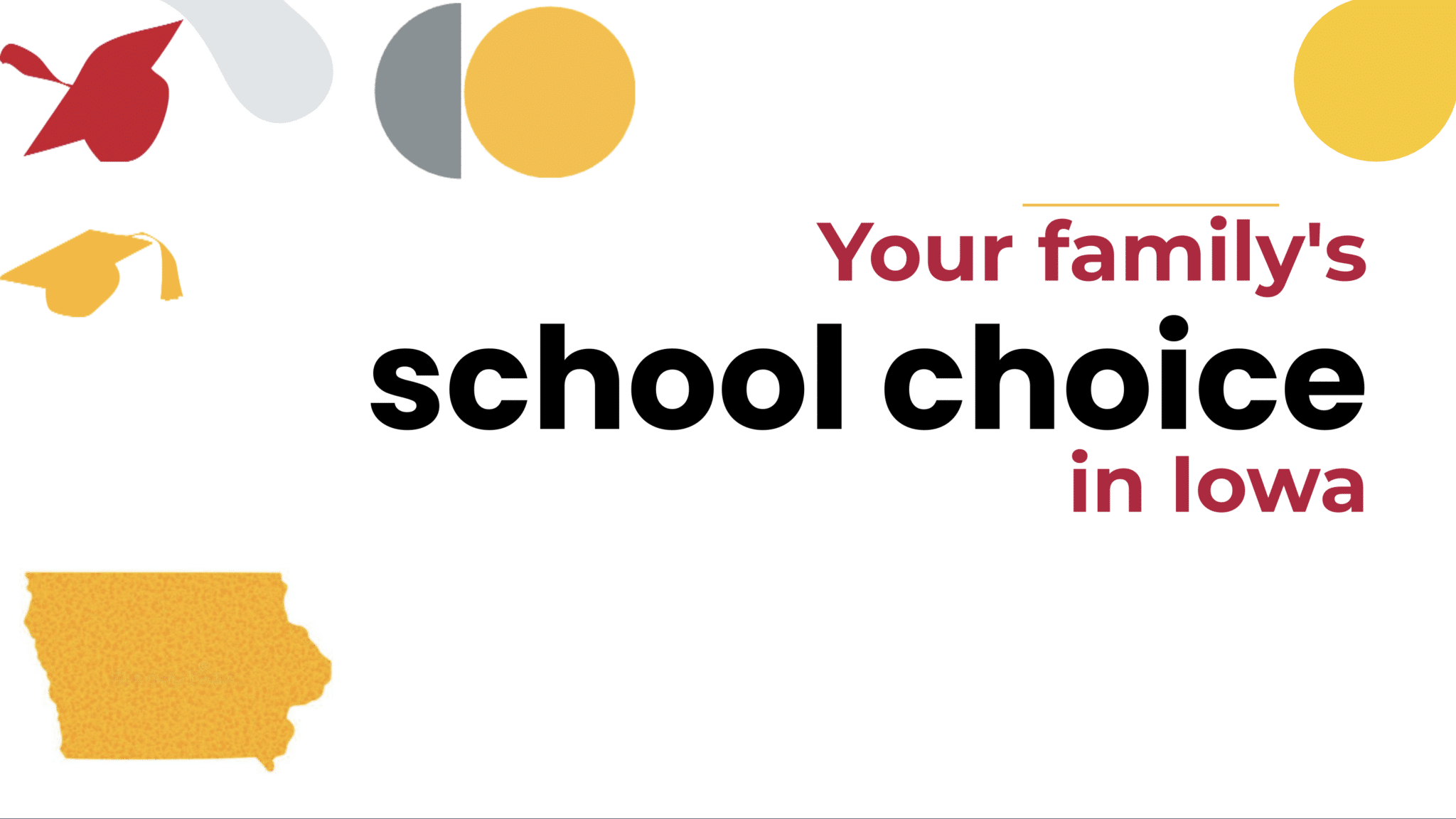Choosing a school? You’ve got options.
Iowa parents, you have access to more K-12 school choice options than you might realize. Navigating these options is an important task, one that can make all the difference in the world to your child. It’s also one you’re well-equipped to accomplish!
This post will breakdown the main types of schools available to you in Iowa, as well as provide some extra resources. Iowa families can choose from traditional public schools, public charter schools, public magnet schools, private schools, online learning, homeschooling, and microschooling and mix-and-match learning.
Interested in learning more about Iowa’s ESA program? Check out our deep dive blog on the Students First Act!

- Traditional Public Schools
- Public Charter Schools
- Public Magnet Schools
- Private Schools
- Online Schools
- Homeschool
- Microschooling
Iowa Traditional Public Schools
First off, most children in Iowa (87.6%) attend traditional public schools. Traditional public schools are free to attend, open to all students, operated by school districts, and funded by taxpayers. Iowa spends, on average, $13,835 per public school student each year.
Iowa has unrestricted open enrollment for public school. Open enrollment refers to whether parents can choose to send their child to any public school in Iowa, regardless of where they live or where the school is located. Based on Iowa’s recently-expanded laws, families can generally apply to any traditional public school, even one in another district, at any time during the year. Of course, schools may deny a request if there is not enough classroom space. For a real-world example of the transfer process, check out Davenport Community Schools’ open enrollment details.
Open enrollment is a valuable option because traditional public schools aren’t all the same: They may differ in learning methods and one may just “feel different” than another to you. Keep in mind that some students participating in open enrollment, including those meeting certain income guidelines, are even provided transportation to their public school of choice by their assigned district. Once a student’s open enrollment request is approved, the family does not need to re-apply each school year.
You can download Iowa’s open enrollment handbook and application at the Iowa Department of Education. Find out more about public schools and open enrollment at “Public Schools Without Boundaries: A 50-State Ranking.”
Iowa Charter Schools
Depending on where you are located, you may be able to choose a charter school for your child. Charter schools are tuition-free public schools that have extra freedom to innovate with curriculum and learning methods. Iowa enacted a charter school law in 2003 and there are now five charter schools in the state, including a hybrid online school for students across Iowa. The newest charter school is Horizon Science Academy in Des Moines.
Each public charter school has a charter which explains the school’s purpose and what specific community need it serves. For example, that could be providing a technical track or offering a rigorous, literacy-based curriculum. If there are more families seeking admittance to a charter school than there are seats, a lottery system is usually used to randomly determine admittance.
The state passed a charter school expansion law in 2021. Now, groups looking to start a charter school can apply directly to the state Department of Education for approval (rather than their local school board).
Iowa Magnet Schools
You can also choose magnet schools! Magnet schools are district-run public schools that allow kids to focus on a specific learning track, such as engineering or the arts. Magnet schools teach all subjects through the lenses of that specific track. Iowa has several magnet schools scattered throughout the state. In the Cedar Rapids Community School District, for instance, there are five magnet schools, including Johnson STEAM Academy, which has been ranked as one of the best magnet schools in the United States.
In fact, the first magnet high school in Iowa is opening in 2023: City View Community High School will offer a project-based learning focus.
You can read more about magnet schools at the Iowa Department of Education. If there is a magnet school near you with a theme that interests your child, this could be a great option to consider.
Iowa Private Schools
Iowa families can also consider private schools, nonpublic schools that charge tuition. Private schools may offer a unique curriculum, smaller class sizes, or a faith-based tradition. There are about 240 private schools across the state of Iowa. The average tuition for private schools in the state is $4,953 for elementary schools and $9,167 for high schools.
Iowa offers an education savings account program, that gives families funds to use for tuition and other expenses at accredited private schools. More than 18,000 students participated in this program in the 2023-2024 school year! For 2024-2025, students who used Iowa’s ESA program last year, current public school students, and new kindergarteners can apply for the program regardless of their income. Current private school students from families whose income is less than or equal to 400% of the federal poverty level ($124,800 for a family of four in 2024) are now eligible. In total, that means about 94% of students in the state will be eligible this school year!
Additionally, families can take a tax deduction of up to $500 per student for nonpublic school expenses. While the deduction is relatively small, every little bit can help.
Also, children in Iowa are eligible for scholarships through the School Tuition Organization Tax Credit as long as their family income doesn’t exceed 400% of the federal poverty level ($111, 000 for a family of four in 2022-2023).
Learn more at Iowa Catholic Conference and Private School Review: Iowa.
Iowa Online Learning
Whether your child wants to accelerate learning or needs a quieter, less stressful environment in which to focus, you may be interested in trying virtual school.
Iowa offers several free, full-time online learning options for students, such as Iowa Connections Academy and Iowa Virtual Academy. In order for funding to follow a child to online school, families need to fill out the Iowa Open Enrollment Application with their assigned district for approval.
In addition to these statewide options, several districts currently offer online programs serving all grades K-12. You can find a full list of online school options at the Iowa Department of Education.
There are also some district online learning programs, such as Des Moines Independent Community School District Virtual Learning, Cedar Rapids Community School District Virtual Academy, Sioux City Community School District’s VIBE Academy, and Council Bluffs Community School District Virtual Academy.
High school students across the state also use online courses for credit recovery through Kirkwood Community College. Enrollment must take place through your local school. Additionally, Iowa Online AP Academy offers online Advanced Placement courses for middle and high school students who do not have access to these courses in their schools.
To read more about online learning in Iowa, check out the Digital Learning Collaborative’s state profile.
Iowa Homeschooling
Iowa families can also choose homeschooling, the process of parents educating students at home. As both technology and school choices have spread in Iowa, homeschooling is an increasingly popular choice.
In Iowa, 3.7% of all K-12 students are homeschooled. Notice of your intent to homeschool is required by September 1 or within 14 days of starting unless you are homeschooling via private instruction (IPI or PI). It is recommended that you formally withdraw your student from public school so they are not marked truant.
The state does not require standardized testing for most homeschoolers but in some cases requires parents to teach specific subjects, like math and reading. In Iowa, your homeschooled student may still be eligible to participate in classes, sports, or activities at a local public school through dual enrollment. Additionally, homeschoolers are eligible to receive some special education services from Iowa school districts.
Iowa offers a funding assistance program called HSAP (Homeschool Assistance Program). Your local public school district may offer this program to resident or open-enrolled homeschooled students; however, your district is not required to provide this funding to you. Finally, homeschool families are eligible for a parental tuition tax credit of up to $500 per student.
Check out resources about homeschooling specific to Iowa.
Iowa Microschools and Mix-and-Match Learning
Today, some Iowa families are blending school options to come up with new ways to personalize education. Microschools are one of these ways. A microschool refers to students gathering together in a small group – with adult supervision – to learn, explore, and socialize. Microschools can take a variety of shapes and legal forms, from homeschoolers coming together at an enrichment center to a private school committed to small classrooms. What microschools share in common is a commitment to small-group learning and close-knit relationships, along with an emphasis on children as individual learners.
Here are real examples of microschools and innovative learning options in Iowa:
- The Community Academy Microschool aims to develop and offer year-round, community-based, extracurricular programming for community youth.
- Yirah School House is a microschool based in Knoxville that offers a project-based learning style to students aged 7-11.
- While not as “micro” as a microschool, Iowa BIG is an innovative, interdistrict public school initiative. Participating students learn by working on projects and in project teams developing initiatives they care about in their community.
Remember, microschooling is more a mentality than a specific legal distinction in most cases. Often, a family participates in a microschool while legally homeschooling, or being enrolled in a private or online school.
Search for Schools Near Me
Microschooling and Mix-and-Match Learning
How can it empower parents and help kids achieve their dreams?
7 Step Guide
Tips to help you find a school where your daughter or son will learn, succeed, and be happy.
Education Resources for
Iowa Parents
For additional information about school choices in Iowa, visit these resources:
Every state is different when it comes to school choice options.
Sign up below to get a detailed comparison:
"*" indicates required fields
